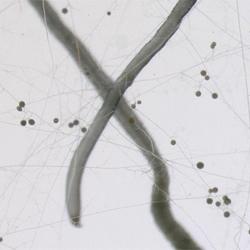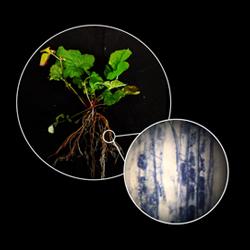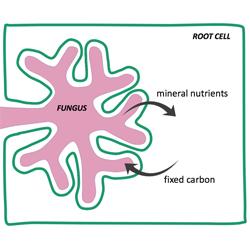Our research focuses on understanding how nutrient trade is regulated in the arbuscular mycorrhizal (AM) symbiosis, a mutualistic relationship that is formed by most land plants and AM fungi. This symbiosis provides significant benefits to both partners - plants receive essential mineral nutrients acquired by the fungal mycelium in the soil, and in return deliver photosynthetically fixed carbon to the fungus. Plants that associate with AM fungi typically display enhanced mineral nutrition, improved growth, and increased yield. However, with up to 20% of the photosynthesis products being allocated to the fungus, the symbiosis is associated with a substantial carbon cost for the plant. Our goal is to identify the molecular mechanisms that allow plants to control carbon allocation to the fungus, and to understand how symbiotic, endogenous, and environmental factors affect the amount of carbon that is delivered to the fungus. To address these questions, we combine carbon tracing and (single-cell) transcriptomics approaches with targeted mutagenesis, microscopy imaging, and molecular biology techniques in the model species rice and Medicago truncatula.
Our key research questions are:
- Which enzymes and transporters are involved in carbon allocation to AM fungi, from the initial site of carbon fixation in leaves, to the site of nutrient exchange in colonised root cells?
- How do symbiotic, endogenous, and environmental factors affect carbon allocation to AM fungi?
- Where is carbon allocation regulated? In which plant tissues and cells are decisions made?
- How do plants ensure that the symbiosis with AM fungi remains mutually beneficial?
- Can we exploit the molecular mechanisms that control nutrient trade to optimise the cost-benefit balance of AM symbiosis?




